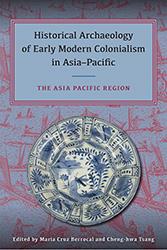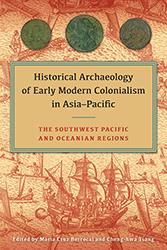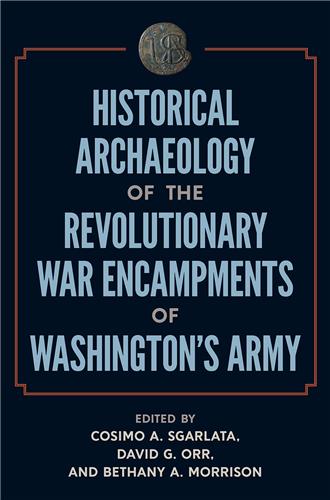Offering an in-depth look at historical archaeology, public history, and reconstruction in Colonial Williamsburg, this volume provides state-of-the-art examples of how the discipline can be used to inform, engage, and educate.
Buy Books: browse by title
A - B - C - D - E - F - G - H - I - J - K - L - M - N - O - P - Q - R - S - T - U - V - W - X - Y - ZPlease note that while you may order forthcoming books at any time, they will not be available for shipment until shortly before publication date
Packed with archaeological and historical evidence from both land and underwater sites, impressive in geographical scope, and featuring perspectives of scholars from many different countries and traditions, these volumes illuminate the often misunderstood nature of early colonialism in Asia-Pacific.
Packed with archaeological and historical evidence from both land and underwater sites, impressive in geographical scope, and featuring perspectives of scholars from many different countries and traditions, these volumes illuminate the often misunderstood nature of early colonialism in Asia-Pacific.
In this milestone work, William Fowler uses archaeology, history, and social theory to show that the establishment of cities was essential to Spanish colonialism. Fowler draws upon decades of research at Ciudad Vieja, a sixteenth-century site located in present-day El Salvador and the best-preserved Spanish colonial city in Latin America.
Exploring archaeological sites and materials that uncover the history of Massachusetts, this book chronicles the diverse story of the state from the seventeenth century to the present.
This book explores the historical archaeology of the past four hundred years in Michigan, illustrating how the state’s history reflects the broader American experience through themes of entrepreneurship, immigration, capitalism, and civil rights.
Emphasizing the important social relationships that form between people who participate in small-scale economic transactions, contributors to this volume explore often-overlooked networks of intimate and shadow economies—terms used to describe trade that takes place outside formal market systems.
In this book, Douglas Wilson uses historical documents, Indigenous oral traditions, and the material record to provide a comprehensive overview of the historical archaeology of the Pacific Northwest region from the seventeenth through the twenty-first centuries.
This volume presents recent archaeological and ethnohistorical research on the encampments, trails, and support structures of the Continental Army during the American Revolutionary War, illuminating the daily lives of soldiers, officers, and camp followers apart from the more well-known scenarios of military campaigns and battles.
The Galápagos Islands are one of the world’s premiere nature attractions, home to unique ecosystems widely thought to be untouched and pristine. This volume reveals that the archipelago is not as isolated as many imagine, examining how centuries of human occupation have transformed its landscape.











